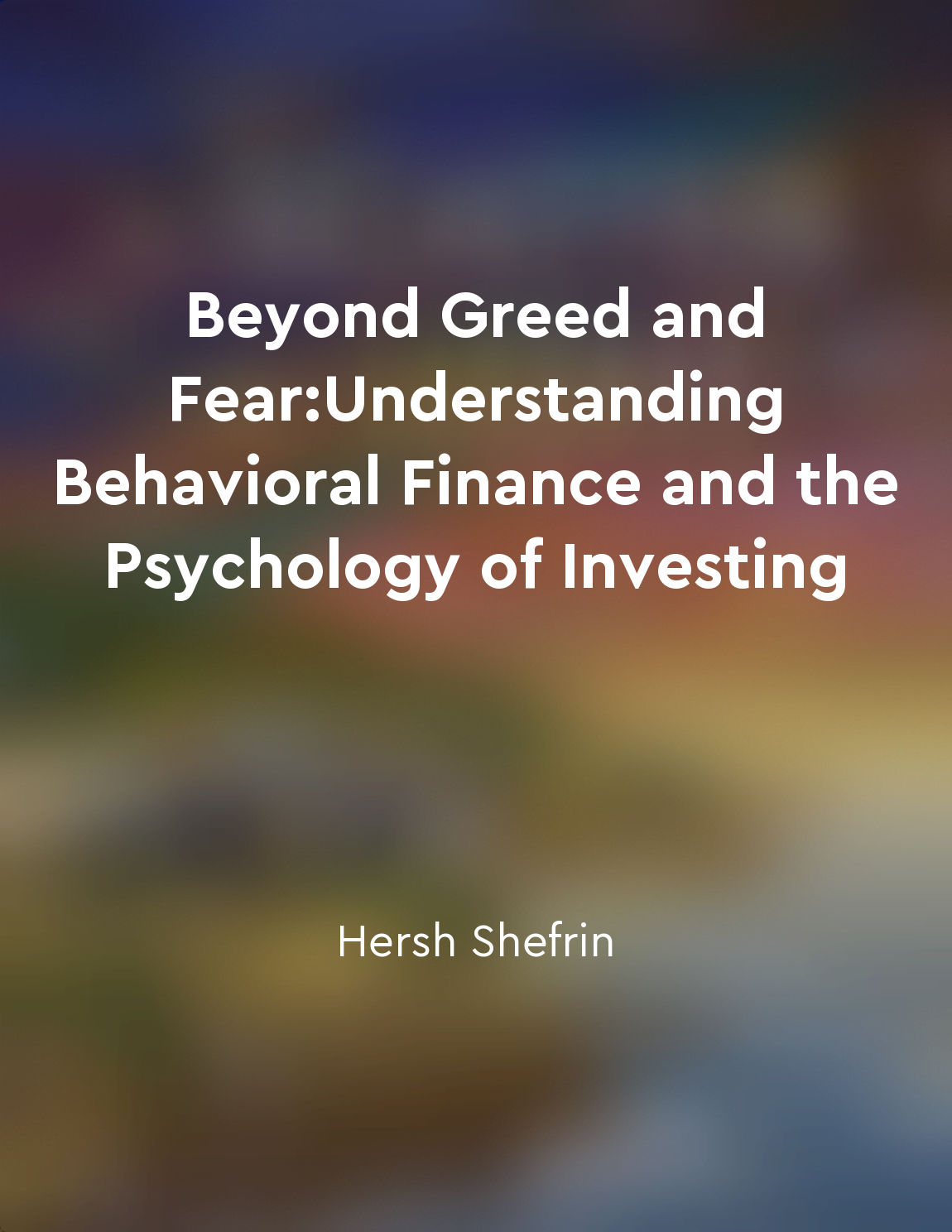Audio available in app
Investing requires discipline and emotional detachment from "summary" of The Intelligent Investor, Rev. Ed by Benjamin Graham
Investing in the stock market demands a level of discipline that is not often found in everyday life. This is because the market is an unpredictable and often chaotic entity, subject to the whims of human emotion and market forces beyond our control. To succeed in this arena, one must cultivate a sense of detachment from these external factors and focus instead on a rational and logical approach to investing. Emotional detachment in investing means being able to separate one's feelings from the decision-making process. This is easier said than done, as humans are inherently emotional beings. However, in the world of investing, emotions can often lead to poor decision-making and impulsive actions that can have detrimental effects on one's portfolio. Discipline is also a key component of successful investing. It requires the ability to stick to a long-term investment plan, even in the face of market volatility and uncertainty. This means avoiding the temptation to buy or sell based on short-term market fluctuations or media hype. Instead, one must have the discipline to stay the course and trust in the fundamentals of their investment strategy. By combining discipline and emotional detachment, investors can create a solid foundation for long-term success in the stock market. This approach allows one to make informed decisions based on logic and reason rather than fear or greed. It also helps to mitigate the risk of making costly mistakes that can negatively impact one's financial future.- The concept of investing requiring discipline and emotional detachment is a fundamental principle that underpins successful investing. By cultivating these qualities, investors can navigate the unpredictable world of the stock market with confidence and resilience, ultimately increasing their chances of achieving their financial goals.
Similar Posts

Understanding our relationship with money requires selfreflection and introspection
To truly grasp the dynamics of our relationship with money, we must engage in a process of self-reflection and introspection. T...
Take advantage of taxdeferred investment accounts
Tax-deferred investment accounts are a valuable tool for investors looking to maximize their returns over time. By taking advan...

Mental shortcuts can lead to suboptimal investment choices
Investors often rely on mental shortcuts, or heuristics, to make decisions. These shortcuts are useful for simplifying complex ...
Confirmation bias causes investors to seek out only information that supports their beliefs
Confirmation bias is a common trap that many investors fall into. This bias causes individuals to seek out information that con...
Reflection on money beliefs can lead to better financial outcomes
When individuals take the time to reflect on their beliefs and attitudes towards money, they may uncover deep-rooted assumption...
Don't be afraid to ask questions
Peter Lynch encourages investors to always be curious and never hesitate to seek clarification by asking questions. He stresses...
Developing a clear investment plan can help you stay organized and efficient
Having a well-defined investment plan is crucial for staying organized and efficient in the stock market. A clear plan helps yo...
Money triggers the brain's pleasure center
When you think about money, your brain doesn't just process it as a piece of paper or a string of numbers. It triggers a reacti...
Continuous education and learning are essential for staying ahead in the market
Investors who wish to succeed in the stock market must understand that knowledge is power. The financial landscape is constantl...
Emotions can cloud judgment, so it's important to remain rational
When it comes to making decisions in the stock market, emotions can often get in the way of rational thinking. This is a common...

